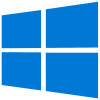Provides Several Quality Fixes And 20H2 Edition New Features
Improvements
Windows 10, version 20H2
Important: Use EKB KB5003791 to update to Windows 10, version 21H2.
This non-security update includes quality improvements. Key changes include:
- This build includes all the improvements from the supported Windows 10, version 20H2 editions.
- No additional issues were documented for this release.
Windows 10, version 21H1
Important: Use EKB KB5000736 to update to Windows 10, version 21H1.
This non-security update includes quality improvements. Key changes include:
- This build includes all the improvements from the supported Windows 10, version 20H2 editions.
- No additional issues were documented for this release.
Windows 10, version 20H2 editions: Windows 10 Enterprise Multi-Session , Windows 10 Enterprise and Education, Windows 10 IoT Enterprise
- New! Gives IT admins the ability to remotely add languages and language-related features. Additionally, they can now manage language scenarios across several endpoint managers.
- New! Enhances Microsoft Defender for Endpoint's ability to identify and intercept ransomware and advanced attacks.
This update makes quality improvements to the servicing stack, which is the component that installs Windows updates. Servicing stack updates (SSU) ensure that you have a robust and reliable servicing stack so that your devices can receive and install Microsoft updates.
Bug fixes
- Addresses an issue that might cause some game installations to fail because of a licensing issue.
- Addresses an issue that affects the icon colors of the list in the Search app.
- Addresses an issue that might cause error 0x1E when you shut down or restart a device.
- Addresses a known issue that causes Microsoft Edge to stop responding when you use IE mode. This issue also prevents you from interacting with a dialog.
- Addresses an issue that causes a subscription activation to fail under certain conditions.
Windows 10, version 20H2 editions: Windows 10 Enterprise Multi-Session , Windows 10 Enterprise and Education, Windows 10 IoT Enterprise
- Addresses an issue that causes ServerAssignedConfigurations to be null in a few full configuration scenarios.
- Addresses a known issue that causes Microsoft Edge to stop responding when you use IE mode. This issue also prevents you from interacting with a dialog.
- Addresses an issue that affects transparency in layered windows when you are in High Definition remote applications integrated locally (RAIL) mode.
- Addresses an issue that might generate error 0x1E when you shut down or restart a device.
- Addresses an issue that causes a subscription activation to fail under certain conditions.
- Addresses an issue that might cause some game installations to fail because of a licensing issue.
- Addresses an issue that prevents virtualized App-V Microsoft Office applications from opening or causes them to stop working.
- Addresses an issue that might cause the deployment of the Windows Hello for Business certificate to fail in certain circumstances after you reset a device.
- Addresses an issue that degrades BitLocker performance.
- Addresses an issue that causes the Resultant Set of Policy tool (Rsop.msc) to stop working when it processes 1,000 or more "File System" security settings.
- Addresses an issue that continues to trust a revoked Attestation Identity Key (AIK) certificate and fails to generate a new certificate.
- Addresses an issue that causes the Take a Test app to remove all policies related to lockdown enforcement when you close the app.
- Addresses an issue that affects the jump list icon colors in the Search app.
- Addresses an issue that affects Focus Assist functionality for applications that run in full screen.
- Addresses an issue that prevents devices from receiving an offer from Windows Update for the same extension driver when that extension driver is already installed without the base driver.
- Addresses a race condition that causes the Local Security Authority Subsystem Service (LSASS) to stop working on Active Directory domain controllers. This issue occurs when LSASS processes simultaneous Lightweight Directory Access Protocol (LDAP) over Transport Layer Security (TLS) requests that fail to decrypt. The exception code is 0xc0000409 (STATUS_STACK_BUFFER_OVERRUN).
- Addresses an issue that affects a lookup for a nonexistent security ID (SID) from the local domain using read-only domain controller (RODC). The lookup unexpectedly returns the STATUS_TRUSTED_DOMAIN_FAILURE error instead of STATUS_NONE_MAPPED or STATUS_SOME_MAPPED.
- Addresses an issue that might cause cldflt.sys to reference invalid memory in race conditions.
- Addresses an issue that affects and output in the Storport driver and might cause your system to stop responding.
- Addresses an issue that might affect Cluster Shared Volumes (CSV). The dismount time for a CSV might be longer when you migrate them.
Open issues
*Symptoms: Devices with Windows installations created from custom offline media or custom ISO image might have Microsoft Edge Legacy removed by this update, but not automatically replaced by the new Microsoft Edge. This issue is only encountered when custom offline media or ISO images are created by slipstreaming this update into the image without having first installed the standalone servicing stack update (SSU) released March 29, 2021 or later.
Note Devices that connect directly to Windows Update to receive updates are not affected. This includes devices using Windows Update for Business. Any device connecting to Windows Update should always receive the latest versions of the SSU and latest cumulative update (LCU) without any extra steps.
Workaround:
To avoid this issue, be sure to first slipstream the SSU released March 29, 2021 or later into the custom offline media or ISO image before slipstreaming the LCU. To do this with the combined SSU and LCU packages now used for Windows 10, version 20H2 and Windows 10, version 2004, you will need to extract the SSU from the combined package. Use the following steps to extract the SSU:
- Extract the cab from the msu via this command line (using the package for KB5000842 as an example): expand Windows10.0-KB5000842-x64.msu /f:Windows10.0-KB5000842-x64.cab
- Extract the SSU from the previously extracted cab via this command line: expand Windows10.0-KB5000842-x64.cab /f:*
- You will then have the SSU cab, in this example named SSU-19041.903-x64.cab. Slipstream this file into your offline image first, then the LCU.
If you have already encountered this issue by installing the OS using affected custom media, you can mitigate it by directly installing the new Microsoft Edge. If you need to broadly deploy the new Microsoft Edge for business, see Download and deploy Microsoft Edge for business.
*Symptom: After installing this update, XPS Viewer might be unable to open XML Paper Specification (XPS) documents in some non-English languages, including some Japanese and Chinese character encodings. This issue affects both XML Paper Specification (XPS) and Open XML Paper Specification (OXPS) files. When encountering this issue, you may receive an error, "This page cannot be displayed" within XPS Viewer or it might stop responding and have high CPU usage with continually increasing memory usage. When the error is encountered, if XPS Viewer is not closed it might reach up to 2.5GB of memory usage before closing unexpectedly.
This issue does not affect most home users. The XPS Viewer is no longer installed by default as of Windows 10, version 1803 andmust be manually installed.
Status: Microsoft is working on a resolution and will provide an update in an upcoming release.
*Symptom: After installing this update, some Windows devices might have issues with audio not working. Some affected Windows devices might have no audio, but other affected Windows devices might only have issues on certain ports, certain audio devices or only within certain applications. Most affected audio devices drivers have the "audio enhancements" setting disabled before installing this update or the sound device driver has issues with the "audio enhancements" feature.
Workaround:
This issue can be mitigated differently depending on your symptoms and if you have installed the update already. Please see the known issue on Windows release health for instructions to prevent and mitigate this issue.
This issue is addressed using a Known Issue Rollback (KIR). This KIR will prevent the issue on Windows devices that have not installed KB5015878, but will have no effect on devices already affected by this known issue. Please note that it might take up to 24 hours for the KIR to propagate automatically to consumer devices and non-managed business devices. Restarting your Windows device might help the KIR apply to your device faster. For enterprise-managed devices that have installed an affected update and encountered this issue, you can address it by installing and configuring a special Group Policy. The special Group Policy can be found in Computer Configuration >Administrative Templates>
Group Policy downloads with Group Policy name:
- Download for Windows 10, version 21H2, Windows 10, version 21H2, Windows 10, version 20H2 -KB5015878 220706_045043 Known Issue Rollback
Important You must install and configure the Group Policy for your version of Windows to resolve this issue.
*Symptoms: Starting at 12:00 A.M. Saturday, September 10, 2022, the official time in Chile will advance 60 minutes in accordance with the August 9, 2022 official announcement by the Chilean government about a daylight saving time (DST) time zone change. This moves the DST change which was previously September 4 to September 10.
Symptoms if the workaround is not used on devices between September 4, 2022 and September 11, 2022:
- Time shown in Windows and apps will not be correct.
- Apps and cloud services which use date and time for integral functions, such as Microsoft Teams and Microsoft Outlook, notifications and scheduling of meetings might be 60 minutes off.
- Automation that uses date and time, such as Scheduled tasks, might not run at the expected time.
- Timestamp on transactions, files, and logs will be 60 minutes off.
- Operations that rely on time-dependent protocols such as Kerberos might cause authentication failures when attempting to logon or access resources.
- Windows devices and apps outside of Chile might also be affected if they are connecting to servers or devices in Chile or if they are scheduling or attending meetings taking place in Chile from another location or time zone. Windows devices outside of Chile should not use the workaround, as it would change their local time on the device.
Workaround:
To mitigate this issue, please see one of the following:
- Windows 10, version 21H2: Possible issues caused by new Daylight Savings Time in Chile
- Windows 10, version 21H1: Possible issues caused by new Daylight Savings Time in Chile
- Windows 10, version 20H2: Possible issues caused by new Daylight Savings Time in Chile
We are working on a resolution and will provide an update in an upcoming release.
Note We plan to release an update to support this change; however, there might be insufficient time to properly build, test, and release such an update before the change goes into effect. Please use the workaround above.


